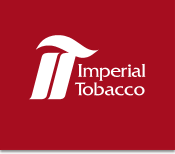History
1887-1945
In 1880 in order to increase government tax revenues the Royal Ministry of Finance decided to build a tobacco factory in Debrecen. In order to facilitate this, City leaders gave 34 acres of land to the Ministry of Finance. The area selected was marsh ground 1.5 kms from Debrecen city centre. In order to make the ground useable the builders first had to solve the problem of how to discharge the groundwater. It took nearly six years to achieve this and entailed the building of a 1 m thick concrete foundation for the site. Eventually, on October 25th 1887, the State Tobacco Factory at Debrecen was completed and began production.
At the start of production operations the factory employed 416 workers, most of whom were previously local agricultural workers who were retrained by experts from Budapest and Kolozsvár (currently Cluj in Romania). The Factory initially produced Hand rolling tobaccos, handmade cigarettes, pipe tobaccos and an extracted tobacco product called thanaton. Pipe tobacco was the main focus of production in the early years with the factory quickly becoming the biggest producer in the Region with an annual production capacity of over 7.5m Kg. In addition to this there was an increasing demand for cheap cigarillos which were very labour intensive to produce. In 1894, in order to cater for this demand, the number of employees at the factory was increased from 416 to 1178.
At the end of the 19th century the factory was modernised to incorporate Tettlak and Questler machines for cutting and filling operations. During this period the factory concentrated on producing Király (King), Hölgy (Madame), Magyar (Hungarian) and Virzsinia (Virginia) cigarillos. The factory also produced many Pipe tobaccos, the most popular examples being Finom Magyar (Fine Hungarian) long cut pipe tobacco, Közép Finom Magyar (Medium Fine Hungarian), Hazai (Domestic), Magyar (Hungarian) and the Kapa (Hoes) pipe tobacco, (the last one was produced mostly for the army and other armed services and was known internally as Limito.
1945-1991
The factory was largely undamaged by the Second World War and production soon restarted after the cessation of hostilities. Further mechanisation followed with new machines being introduced to help with the dampening and mixing processes. This, in turn, led to further expansion of production.
In 1960 a new warm processing technology was introduced in the factory which decreased the preparation time of the tobacco from 8-10 days to less than 1 day. This was a milestone in the significant modernisation of the plant which, in 1971, then progressed on to producing filters and consequently the production of filtered cigarettes began.
In 1989 political changes in Hungary created what became a real market economy. The factory management responded to this new competitive environment and, as part of this process, the factory changed to become a Limited Liability Company (Kft.)
1992-2003
On 30th June 1992 the factory was sold to Reemtsma Cigarettenfabriken GmbH of Germany. Reemtsma immediately started investing in the business systems and introduced many technical improvements such as Comet computer systems (latterly SAP) as well as completely modernising the sales and marketing processes. Reemtsma did however maintain both the traditions of the factory and its Hungarian management.
Imperial Tobacco Group, the world's fourth biggest tobacco company based in the United Kingdom (Bristol), announced on 15 May 2002 that it had acquired Reemtsma Cigarettenfabriken Gmbh. Thus the factory once again came under new ownership and a new era began.
After 2004
The year of 2004 was remarkable in several ways. Republic of Hungary joined to the European Union on 1 May 2004 and, as a result of the effects of the EU-enlargement Imperial Tobacco Group Plc. made the decision to close both the tobacco factory and its filter manufacturing unit in city Debrecen.
Despite the closure of the Debrecen plant Imperial Tobacco maintained, of course, its presence in Hungary and continued the marketing and sales activities of its brands in the country as a Registered Trader under the name of Imperial Tobacco Hungary Tobacco Distributor Ltd.
Our company is the 3rd largest player in the domestic tobacco market.
In 1880 in order to increase government tax revenues the Royal Ministry of Finance decided to build a tobacco factory in Debrecen. In order to facilitate this, City leaders gave 34 acres of land to the Ministry of Finance. The area selected was marsh ground 1.5 kms from Debrecen city centre. In order to make the ground useable the builders first had to solve the problem of how to discharge the groundwater. It took nearly six years to achieve this and entailed the building of a 1 m thick concrete foundation for the site. Eventually, on October 25th 1887, the State Tobacco Factory at Debrecen was completed and began production.
At the start of production operations the factory employed 416 workers, most of whom were previously local agricultural workers who were retrained by experts from Budapest and Kolozsvár (currently Cluj in Romania). The Factory initially produced Hand rolling tobaccos, handmade cigarettes, pipe tobaccos and an extracted tobacco product called thanaton. Pipe tobacco was the main focus of production in the early years with the factory quickly becoming the biggest producer in the Region with an annual production capacity of over 7.5m Kg. In addition to this there was an increasing demand for cheap cigarillos which were very labour intensive to produce. In 1894, in order to cater for this demand, the number of employees at the factory was increased from 416 to 1178.
At the end of the 19th century the factory was modernised to incorporate Tettlak and Questler machines for cutting and filling operations. During this period the factory concentrated on producing Király (King), Hölgy (Madame), Magyar (Hungarian) and Virzsinia (Virginia) cigarillos. The factory also produced many Pipe tobaccos, the most popular examples being Finom Magyar (Fine Hungarian) long cut pipe tobacco, Közép Finom Magyar (Medium Fine Hungarian), Hazai (Domestic), Magyar (Hungarian) and the Kapa (Hoes) pipe tobacco, (the last one was produced mostly for the army and other armed services and was known internally as Limito.
1945-1991
The factory was largely undamaged by the Second World War and production soon restarted after the cessation of hostilities. Further mechanisation followed with new machines being introduced to help with the dampening and mixing processes. This, in turn, led to further expansion of production.
In 1960 a new warm processing technology was introduced in the factory which decreased the preparation time of the tobacco from 8-10 days to less than 1 day. This was a milestone in the significant modernisation of the plant which, in 1971, then progressed on to producing filters and consequently the production of filtered cigarettes began.
In 1989 political changes in Hungary created what became a real market economy. The factory management responded to this new competitive environment and, as part of this process, the factory changed to become a Limited Liability Company (Kft.)
1992-2003
On 30th June 1992 the factory was sold to Reemtsma Cigarettenfabriken GmbH of Germany. Reemtsma immediately started investing in the business systems and introduced many technical improvements such as Comet computer systems (latterly SAP) as well as completely modernising the sales and marketing processes. Reemtsma did however maintain both the traditions of the factory and its Hungarian management.
Imperial Tobacco Group, the world's fourth biggest tobacco company based in the United Kingdom (Bristol), announced on 15 May 2002 that it had acquired Reemtsma Cigarettenfabriken Gmbh. Thus the factory once again came under new ownership and a new era began.
After 2004
The year of 2004 was remarkable in several ways. Republic of Hungary joined to the European Union on 1 May 2004 and, as a result of the effects of the EU-enlargement Imperial Tobacco Group Plc. made the decision to close both the tobacco factory and its filter manufacturing unit in city Debrecen.
Despite the closure of the Debrecen plant Imperial Tobacco maintained, of course, its presence in Hungary and continued the marketing and sales activities of its brands in the country as a Registered Trader under the name of Imperial Tobacco Hungary Tobacco Distributor Ltd.
Our company is the 3rd largest player in the domestic tobacco market.

 Magyar
Magyar English
English